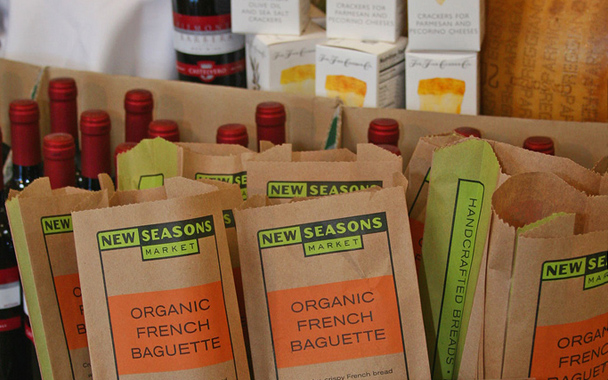I have never understood the Federal Trade Commission’s (FTC’s) fixation on Whole Foods Market’s takeover of Wild Oats. With major airline mergers and multi-billion-dollar banks rushing to leap into bed with each other, you’d think the commission would have more important issues on its plate than a relatively modest half-billion-dollar deal between two natural foods stores. Even after the courts ruled in favor of Whole Foods 15 months ago and Wild Oats was completely absorbed by the larger company, the FTC persists—an instance of trying to unscramble an omelet if ever there was one.
Now, a local, nine-store natural foods purveyor based in Portland, OR, called New Seasons Market—which had no involvement whatsoever in the Wild Oats takeover—finds itself caught in the legal crossfire between the bureaucrats and lawyers representing its giant 270-store competitor.
In mid-October, Whole Foods’ attorneys sent a subpoena to New Seasons CEO Brian Rohter that could force him to give the competition copies of what he says are his company’s most sensitive and confidential financial records, including sales figures, marketing plans, strategic plans, and studies into potential locations for new stores.
“Since the FTC insists that we have harmed these markets, we have to defend ourselves by showing that these markets are doing well,” said Whole Foods spokeswoman Paige Brady, in response to a fascinating (if chilling) blog post written by Rohter on the New Seasons website.
In that post, Rohter wrote: “Allowing Whole Foods to look through all of our private information about how we operate and what our plans are for the future unfairly adds to their already large size and financial advantage. We’ve been able to build a successful local business being David against their Goliath, and we’re happy to keep doing that, but we do object to having one hand tied behind our back.”
Whole Foods’ Brady claimed that Rohter’s worries were unfounded, saying that a protective order would allow no one inside Whole Foods to see the subpoenaed material, and that only the company’s outside counsel and their consultants would have access.
“That’s like trusting the fox to guard the henhouse—and we don’t have any faith it’s going to work like that,” Rohter wrote.
In addition to divulging trade secrets, complying with the subpoena would cost Rohter’s company between $250,000 and $500,000, small potatoes to a large multinational retailer, but a fortune to a small, local operator. He is attempting to have the subpoena quashed, but it’s not certain that will work: “Amazingly, our lawyers tell us there’s a chance we’ll lose the case and be required to turn over the information.” Failure to comply would mean fines and possibly jail time, according to Rohter.




 Pinterest
Pinterest


